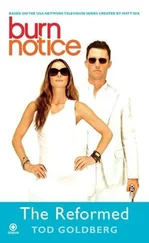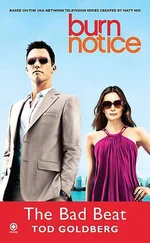“To undermine the Soviet Union.”
“There is only one flaw that I see: you have left out the whirling dervishes. I don’t know how you can work them in, but I think you can. Let me ask you this, admittedly from a doctor’s perspective: do you actually believe all of this, Comrade Zaytsev?”
“Does it matter what I believe?”
“I guess not. Will you be arresting me now?”
“No, not now. We want to give you the opportunity to confess your crimes and surrender publicly, at the hospital staff meeting, which will be attended by journalists and members of the public.
“You will come to the meeting as though you are a member of the audience, then you will rise and take the podium and you will make a full confession, and you will point out other members of your secret organization, who will be there.”
“I don’t have a secret organization, so I am afraid I can’t help you.”
“We will refresh your memory. We will have the names of individuals involved. We will share it with you before the meeting.”
“You want me to falsely accuse good people. That’s indecent. And I don’t understand why you wish to make a spectacle of this. Why wouldn’t you handle my arrest in a customary way, by sending a Black Maria to my apartment in the middle of the night? Is this something new? I’ve never seen this before.”
“You are very perceptive, Sasha. Yes, we want this case to become more open, more visible than it has been. As you’ve read in the newspapers, we are unmasking conspirators, but it’s all been done in secret. We are uncovering conspiracies, but the people don’t know what we are doing. Now we are in a different place in this operation. We want the people to see us at work. We want their support, even their participation in defending the motherland from outside elements. And, Sasha, you are going to see many things you haven’t seen before. The situation is about to change dramatically.”
“I am sure I will. But just to make sure I understand, what am I being offered, should I agree to take part in this spectacle?”
“I am not authorized to make any offers. But you are welcome to take a week to think.”
“What if I say no?”
“Then you will be letting me down. And yourself. I said you were a sensible man. I vouched for you.”
Kogan thanked him. At home, he packed Dusya’s suitcases — she had two — and when she returned from work, he told her to go.
There was no point in having her share his future, like the wives of the Decembrists. Kogan urged her to testify against him — even plead for his execution — when the time comes, i.e., if the organs of state security choose to produce the dance of jurisprudence. Tanets umirayuschego evreya. The dance of the dying Yid.
The idea that the wife must share her husband’s fate is utterly absurd to begin with. It might have been easier to convince her to reject the idea of self-sacrifice had their marriage been good. She would have accepted this as a token of love. Alas, their love was a thing of the past.
Their marital fidelity was among the victims of that war, but that wasn’t the worst of it. He had a succession of “front wives”; she a succession of “front husbands.” The war ended, but normalcy didn’t return. Or maybe it did return, but in a changed form, with neoplasms hanging off its innards.
There was a long tail of complexities, but they still took care of each other, out of duty, perhaps. And now he told her to go, liberated her. He knew exactly where she would go, and it was, oddly, just fine with him.
“Run, Dus’ka, save yourself. I am a dead man,” he implored, and this time she left.
“Perhaps they will leave her alone after they come for me,” he thought as she closed the door of their apartment on Ulansky Street. “Thank God, at least she is Ukrainian.”
* * *
In his transition from machine gunner to surgeon, Kogan learned that the way you feel about death is determined by where you are.
Killing is a natural act when you are nestled behind the shrapnel shield of a Maxim. Your compassion is suspended; your victims are dehumanized. When you are a surgeon whose job it is to save the life of a wounded soldier, life acquires paramount importance.
Dr. Kogan feels no regret about the deaths caused by machine-gunner Kogan. For whatever reason, the boundary between these two men is solid. Never has Kogan contemplated crossing back.
“Aleksandr Sergeyevich, if you had a chance, would you have killed Hitler?” Arkashka Kaplan asked him over vodka a couple of years ago.
Arkashka was the only man who had the ability to get him to confront so fundamental an issue. His integrity and intelligence were unmatched. More important, Kogan trusted the younger man’s intellectual rigor, his willingness to hold himself accountable.
He trusted Levinson’s integrity and intelligence, too, but as an ethicist Levinson was a disaster. Levinson’s thinking always defaulted to strategy. He set goals and plotted the best way to attain them.
“I did have a chance to kill Hitler, I think,” Kogan responded to Arkashka that night. “I think I saw him at a beer hall in Munich, before he was der Führer . Or, at least, I was told that we were sitting near some corporal, Austrian. He was surrounded by thugs, I was told. When he became more prominent, I thought he looked sort of familiar.”
“You could have laced his beer with something bad. You knew how.”
“I suppose I could have.”
“Isn’t it tantalizing to think that you could have saved the lives of millions of people?”
“Yes, that’s one way to look at it. But I didn’t have any basis for believing that this thug would become der Führer . I would have had to kill many thugs, and I still wouldn’t know whether the right one was among them.”
“We are not talking about diagnosis.”
“Are you trying to narrow the question?”
“Yes. In an abstract hypothetical situation, would you, as a physician, have been able to justify killing that man if you knew he would ultimately become der Führer ?”
“For the sake of argument?”
“Yes, for the sake of argument.”
“What about the consequences to me?”
“We aren’t talking about the consequences tonight.”
“I don’t know,” said Kogan, and that was the truth.
Now Kogan is facing a difficult ethical quandary. His arrest, in the midst of a spectacle, is days away. Likely, pogroms are next. Hypothetically, if one individual can be, as they say, “liquidated” to save millions of lives, would he, Dr. Kogan, have the resolve to do it?
Alas, Kogan’s answer is unchanged. He has no idea.
Had the answer been yes, the rest would be strategy.
The evening of February 24 is well suited for disposing of corpses and Black Marias.
The frost is at once fresh and dry, the sort that stopped Charles XII, Napoleon, and Hitler. If you are a soldier in a stranded army, fear that frost. But if you have a thick white sheepskin coat, a high collar, a proper hat, and good felt boots, the frost will be your keeper.
For the burial, Kogan chooses a well at the dacha of Professor N, whose scientific work fuses the disciplines of tumor biology and Marxism-Leninism. According to the esteemed professor, human malignancy is the result of poor moral-ethical upbringing among cancer sufferers. This unified theory of cancer opens possibilities for ideological interventions.
It’s not to Kogan’s credit that he could barely suppress the delight he felt, three months earlier, when he learned that the professor was taken away in a Black Maria from his Moscow apartment.
“What about his wife?” asks Levinson.
Читать дальше












